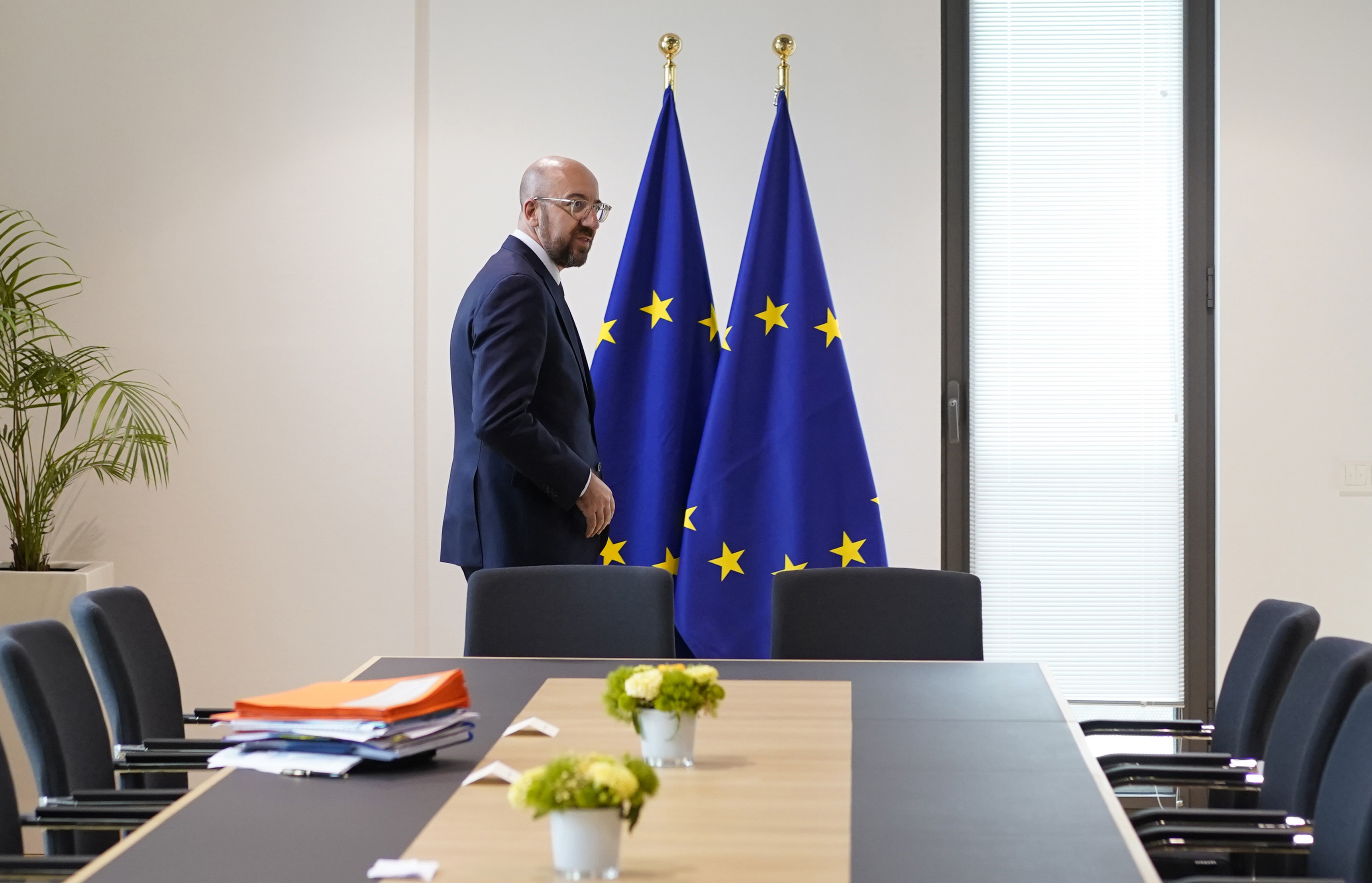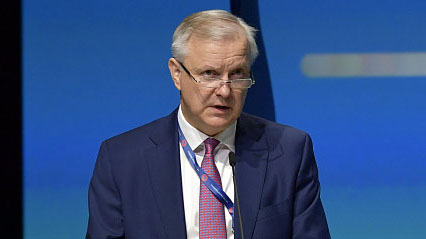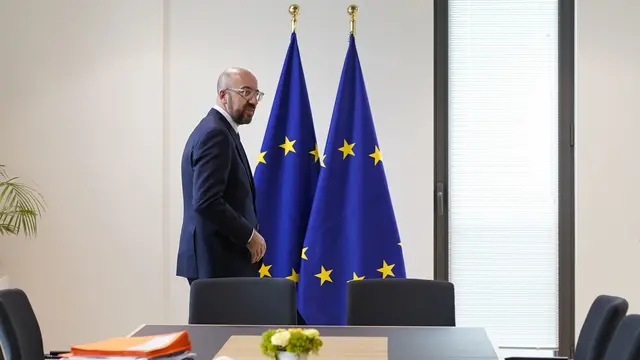
The EU will try to thrash out a financial strategy on Thursday. /AP
European Union leaders will attempt to nail down a financial plan on Thursday to tackle the impact of COVID-19, amid fears that rifts over bailouts, loans and debt could break up the bloc.
Politicians have spoken of their worries that there needs to be a united approach to the virus, with countries having reverted to national interests in the face of the disaster.
They will now meet on a video conference with still little agreement over the size of an EU recovery fund or whether there should be grants, repayable loans or what types of debt repayment.
"I find it essential that the European Council tomorrow would come up with a convincing package in order to mitigate the economic effects of the crisis, especially for the weakest countries," said Finland's central bank chief Olli Rehn.
"The future of Europe as a political community is also at stake."
He called for unity: "The difficulties caused by [the virus] are not due to any single country's reckless management of finances. It is therefore necessary to support the most severely hit countries."
Rehn feels a joint solution is likely to be found via the EU budget and not through joint loans, with the European Commission proposing a $1.63 trillion injection into the economy by raising funds against the bloc's joint balance.
Spain has put forward the creation of a $1.63 trillion fund financed by perpetual debt. Prime Minister Pedro Sanchez said: "I expect the European Council tomorrow will reach a first consensus because it is indispensable."

Finland's Olli Rehn says 'the future of Europe as a political community is also at stake' at the summit. /VCG
The main point of friction involves a north-south divide, with the more fiscally conservative northern countries wanting a tighter rein on spending. They have opposed so-called "corona bonds," or joint debt, from the south to fund recovery.
While the EU has relaxed state aid rules, limits on public spending as well as agreeing a rescue plan of just over $500 billion, there have been repeated clashes over financial strategy. There has also been resentment over reluctance to share and cooperate regarding the distribution of medical equipment.
Rome, Madrid, Paris and Lisbon have all said that not enough is being done economically and there is a need for greater solidarity. The summit needs to resolve how the EU intends to restart growth with lockdown measures set to cause a severe recession.
Italy's prime minister, Giuseppe Conte, is pessimistic about a definitive solution being found on Thursday but he did welcome proposals by Spain and France.
"I don't believe the upcoming meeting of the 27 leaders will find a definitive solution but I will do everything… to ensure it expresses a clear political path in the only reasonable direction," he told the Italian senate.
An agreement of some form is expected from the meeting but it may not be that far-reaching. European Central Bank President Christine Lagarde said that lending to individual countries would be illegal and it would be difficult to hand out cash to citizens.
 简体中文
简体中文

